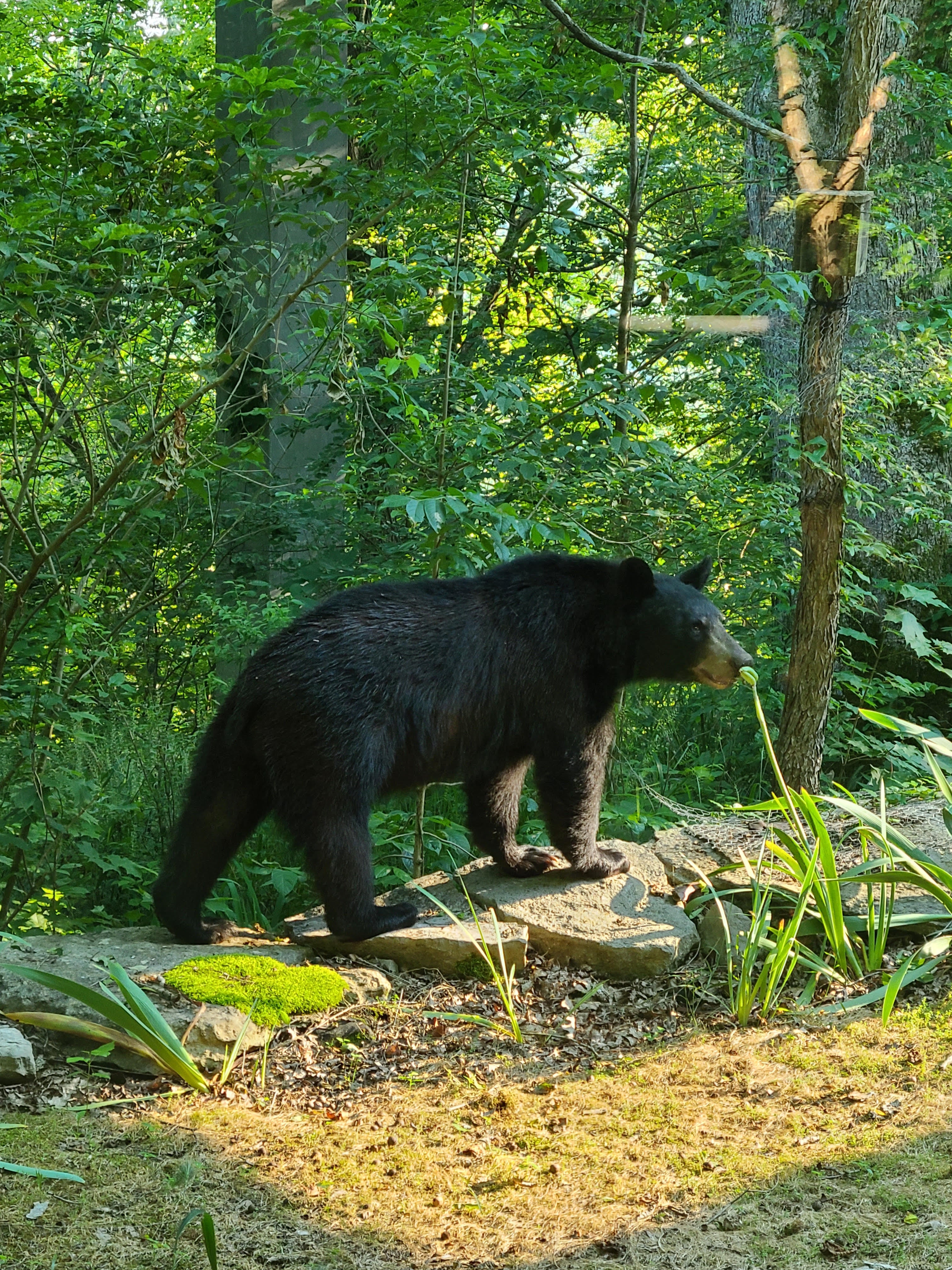Bears in the Bluegrass: Black bears roaming Kentucky River region
Published 9:41 am Friday, July 17, 2020

- Tom Lowery took this photo of a black bear on a private road off of Grimes Mill Road near St. Hubert's Episcopal Church June 20. He was about 250 feet up a cliff when he saw him, he said. "It was quite a surprise," he said.
|
Getting your Trinity Audio player ready...
|
The appearance of a black bear on the University of Kentucky’s campus recently got plenty of attention, but bears have been sighted all over the Bluegrass region this summer.
Or maybe it’s the same bear. The young males do get around.
John Hast, a biologist for the Kentucky Department for Fish and Wildlife Resources, thinks it’s one or maybe two bears that have accounted for all of the recent sightings.
When he gave an interview July 1, he didn’t yet know about the bear seen at the University of Kentucky near the medical center, but the day before, there was one seen on Old Richmond Road about where it goes under the I-75 bridge at Clay’s Ferry. It was wandering across a pasture and someone took a picture of it.
Hast said Thursday the bear in Lexington left town July 3 via Clays Mill Road, and four days later, it crossed U.S. 127 in Frankfort. Since then, there have been a couple of sightings in Shelby County, he said.
The first reported sighting of a bear in the area was on June 3, when some farm workers were setting tobacco and spotted a black bear on Todds Road in Fayette County near Pine Grove, and one of them got a closeup picture of it in a tree.
The same day, it was seen near Winchester Road, not far from Hamburg Pavilion.
It had been seen the day before on a softball field at Athens-Boonesboro.
On June 19, game cameras on a farm on Jones Nursery Road in Clark County captured images of a black bear that was also photographed by other landowners in the area. Around the same time, Tom Lowery got a picture of a black bear, probably the same one, near Gentry Road and St. Hubert’s Episcopal Church.
Jessamine sojourn
In Jessamine County, Danny and Debbie Middleton of River Road near the Valley View Ferry returned home May 30 to find that something had turned over their garbage bins and eaten the food out of their dog dishes.
One of their daughters jokingly asked, wouldn’t it be something if it were a bear?
So they looked at the security camera video, and sure enough, that’s what it was.
“It played around in our yard for about four hours,” Danny Middleton said. “He just came and made himself at home.”
Hast hadn’t heard about the Middletons’ bear encounter, but he wasn’t surprised.
“We’ve had a verified bear sighting in Jessamine County every summer since 2016,” he said. “Most of the time, it is right down there along the Kentucky River.”
The one seen in 2016 was on Taylor Made, a race horse farm.
Far from home
Hast said every bear photo he has seen this summer has been of a lanky young male, about two or three years of age and weighing about 150 pounds. That’s a good description of a bear that would be in the Bluegrass this time of year.
Young black bears will roam 100 miles or so in the summer, feeding and hoping to find a mate.
What happens, Hast said, is that they get “bounced out” of their usual territory by dominant older male bears during mating season because if they stay, the big bears will kill them.
Also, the mother bears chase them away to prevent them from inbreeding.
So the young bears enjoy some summer travel.
“They’ll usually return back to the mountains in the fall,” Hast said.
Black bears, once rare in this part of Kentucky, have made a comeback in the past 20 years or so.
Hast said that in 2006, Fish and Wildlife began documenting reproduction of bears on Pine Mountain in Letcher County, and now there are are 450 or so in two core groups — one in Bell, Harlan and Letcher counties and the other in McCreary and Wayne counties.
“We’ve got a healthy, growing bear population in our mountain counties that has expanded,” he said, and now they are making their way into our neck of the woods.
Stay away
The KDFWR website says that, while bears may appear calm and not threatening, they should be treated with respect because they are wild animals with unpredictable behavior.
Bears usually aren’t aggressive, but most attacks involve food, so people shouldn’t feed them or leave food where they can get to it.
Never approach a bear or run from one, as that will trigger the bear’s instincts to chase. Instead, slowly back away or raise your arms to appear bigger and yell at the bear or use something to make noise to frighten it away.






